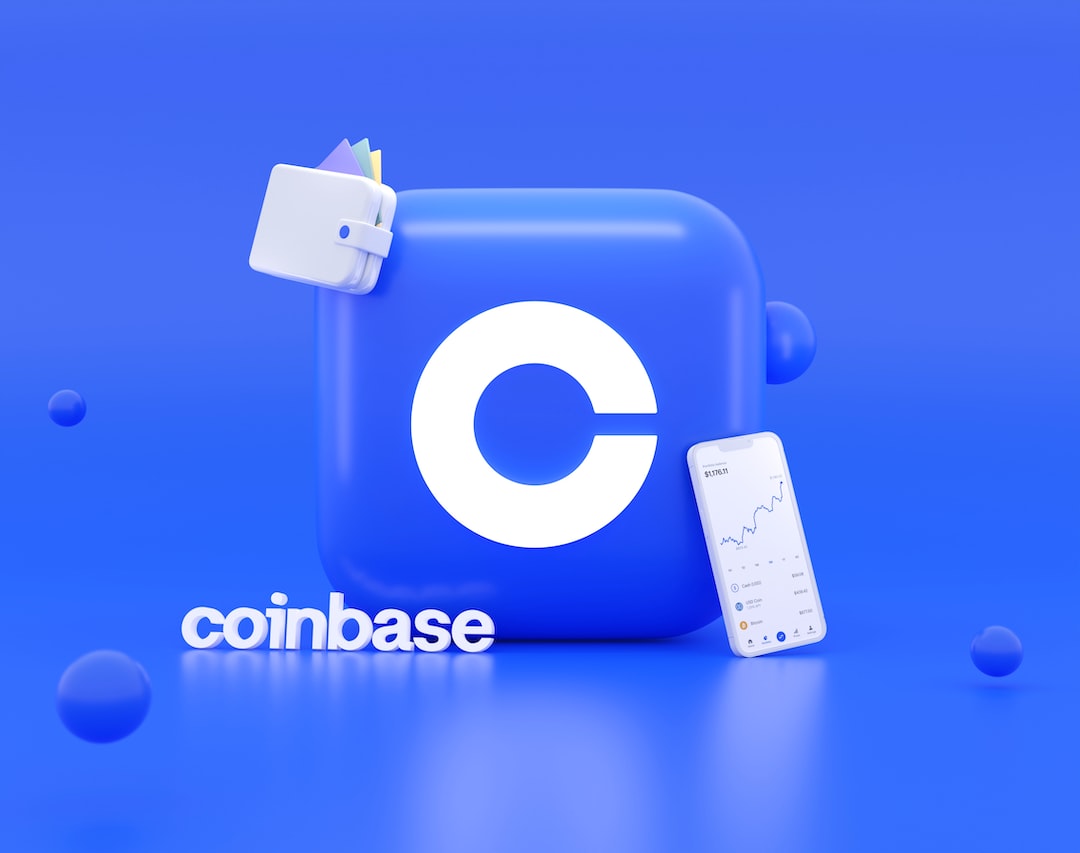Decentralized Finance (DeFi): An Unveiling of the Potential Future of Cryptocurrencies

In a world where cryptocurrencies present a disruptive alternative to traditional financial systems, decentralized finance (DeFi) stands tall as the spearhead of this burgeoning financial revolution. Like the renegade powerful waves handing down a new paradigm, DeFi is rewriting how we comprehend and conduct financial transactions, investments, and lending. This profound evolution promises to offer a decentralized future to the world of finance.
Broadening our knowledge on this theme, this article will delve into the possible advantages, drawbacks, and likely future ramifications of DeFi. This article is intended to illuminate enthusiasts and the general audience alike about the exciting world of DeFi.
Decentralized Finance (DeFi): A Revolutionary Concept in Finance
Decentralized Finance, or DeFi, stands as an avant-garde financial concept that is set to overhaul the way we interact with our finances. The bedrock of DeFi is leveraged by employing the transformative power of blockchain technology, aiming to engineer an open, permissionless, and decentralized financial universe.
As opposed to traditional financial systems, which lean heavily on intermediaries such as banks and other financial institutions, DeFi turns to smart contracts. These protocols are self-executing, digital contracts that accomplish predefined actions autonomously when pre-agreed conditions are met.
Underpinning DeFi is the profound empowerment it gives individual users over their finances. With DeFi, users have the freedom to lend, borrow, trade, and make investments in cryptocurrencies directly through their digital wallets, eradicating the need for a middleman.
Transparency is another monumental game-changer introduced by DeFi. Every transaction and operation are recorded on a public blockchain, enabling users to confirm and track each transaction's history. This unprecedented level of transparency cultivates trust and significantly reduces the risk of fraud and deceit.
Nevertheless, while DeFi presents a myriad of enticing advantages, it isn’t without its own set of risks. Potential investors need to be aware of factors such as vulnerabilities with smart contracts, the volatility of the market, and the lack of regulatory supervision.
When we consider the overarching influence of DeFi, it encapsulates an exhilarating paradigm shift that promises to deliver increased financial freedom, accessibility, and transparency. As this novel notion matures, its potential to alter the global financial landscape could be profound.
Unlocking the Potential of DeFi
As a groundbreaking force in the realm of cryptocurrencies,
DeFi is offering a plethora of potential benefits that could disrupt and revolutionize traditional finance in unprecedented ways. Let's unveil some of the key benefits that DeFi could deliver:
Financial Inclusion
Through DeFi, the unserved and underserved demographics worldwide, who are typically excluded from traditional banking, have the potential to improve their financial situations dramatically. Traditional financial systems often unintentionally exclude millions of individuals due to numerous hurdles such as lack of documentation, an unestablished credit history, or geographic location constraints.
On the contrary, DeFi’s borderless and permissionless nature allows anyone with access to the internet to join, offering essential financial services to those who were previously marginalized.
24/7 Accessibility and Advanced Control
While conventional banking is bound by operating hours and often restricted during holidays, DeFi applications are at the disposal of users 24/7. Users are endowed with complete autonomy over their assets, enabling them to transact and conduct their financial affairs whenever required. This 24-hour access offers unprecedented flexibility and convenience.
Reduced Transactional Costs
Conventional financial systems are riddled with several intermediaries, which leads to towering transaction costs for users. Conversely, the DeFi functioning model exploits blockchain technology and smart contract abilities to automate processes and eliminate middlemen. As a result, transaction fees are significantly curtailed, making financial services more cost-effective and accessible to a broader cross-section of the public.
Transparency and Immutable Documentation
Leading every operation and transaction on public blockchains, DeFi guarantees crystal clear transparency and thorough traceability within its ecosystem. Every action is meticulously recorded on an immutable ledger, visible to all participants. This guarantee of transparency fosters trust, instills confidence, and allows user to independently verify and audit the activities of DeFi protocols.
Decentralization and Security
DeFi platforms operate through a decentralized model, making them less susceptible to single points of failure or cyber threats. The decentralized nature disperses decision-making power across the community, thereby enhancing the overall security and resilience of the system.
Programmable Financial Services
Smart contracts, the engine of DeFi applications, pave the way for programmable finance. Users are empowered to draw up complex financial agreements, which are automated to execute based on specific predetermined conditions. The potential benefits of this aspect of programmability are immense and open up limitless opportunities for innovative financial services such as decentralized lending, automated trading, and yield farming.
Global Access to Liquidity
DeFi protocol enables financial services to access a global pool of liquidity. Users across the globe can participate and contribute assets to the DeFi ecosystem. This worldwide blend of liquidity serves to enhance the efficiency of financial markets and enables better price discovery. This allows users to access and exchange a wide range of global assets more easily.
Identifying the Risks of DeFi
With its game-changing innovation and potential for a vast range of applications, Decentralized Finance (DeFi) has taken the world of cryptocurrencies by storm. However, despite the undeniable potential of the DeFi landscape, it also comes with its own share of risks and challenges.
As the pace of adoption of DeFi accelerates, users must be aware of the potential risks that impact DeFi and take informed decisions. Here are some of the key risks associated with DeFi:
Smart Contract Vulnerabilities
Smart contracts represent the backbone of DeFi operations. However, as with any coding, they are not exempt from bugs and vulnerabilities. Such flaws could lead to significant security breaches and allow potential malicious exploitation, resulting in probable financial losses.
Market Volatility
DeFi users must remain cognisant of the notorious volatility of the crypto market. Assets can experience monumental price fluctuations in short time frames. Whether engaging in trading or investing, it is vital to remain cautious and prepared for market movements, which can lead to substantive gains or losses.
Regulatory Oversights
Defi operates in a somewhat regulatory vacuum compared to the traditional financial systems. While this might offer freedom and accessibility, it also exposes users to potential scams, fraud, and security breaches. The lack of regulatory oversight means fewer legal protections and recourse avenues in case of disputes or irregularities.
User Errors
DeFi demands users to manage their private keys and interact with smart contracts effectively. However, human errors such as misplaced private keys or misdirected funds to incorrect addresses can result in irreversible losses. Therefore, the user is responsible for ensuring security and accuracy, thus adding to the risks associated.
Temporary Losses
Additionally, DeFi platforms that entail liquidity provisions like decentralized exchanges and liquidity pools expose liquidity providers to the risk of temporary loss. Also known by the term, 'impermanent loss', it occurs when the value of the assets in a liquidity pool diverges from their value when held in a simple wallet. This divergence can result in liquidity providers ending up with fewer assets than their initial contribution.
Overcollateralization
Many DeFi lending and borrowing platforms necessitate borrowers to overcollateralize their loans. While this reduces credit risk for lenders, it also locks up a substantial number of assets, thereby limiting their usability elsewhere. Sharp declines in asset prices could trigger liquidation, leading to the loss of collateral.
Low Adoption and Liquidity Risks
Although DeFi’s popularity is on the rise, it is still in its nascent stage. Low adoption rates and less liquidity in some DeFi protocols can result in unanticipated changes during trades and limited access to financial services. Scant liquidity can also make it challenging for users to enter or exit positions at lucrative prices.
Envisioning the Future Impact of DeFi
The potential future impact of Decentralized Finance (DeFi) promises to be groundbreaking, with the capability to redesign the entire financial ecosystem as we know it. As DeFi matures and garners widespread acceptance, several key sectors stand to be influenced profoundly by DeFi:
Financial Inclusion
One of the most substantial potential impacts of DeFi will be its ability to extend financial services to the underbanked and unbanked populations comprehensively. By utilizing DeFi, anyone with internet connectivity can access a vast array of financial services like lending, borrowing, and investing.
Disintermediation of Finance
Banks and other financial institutions that traditionally acted as intermediaries form an integral part of the conventional financial system. However, DeFi challenges this notion by eliminating intermediaries, allowing people to interact directly with DeFi protocols, thus democratizing finance. By doing away with the middlemen, DeFi both reduces costs and enhances efficiency, conferring a higher degree of financial autonomy for its users.
Cross-Border Transactions
Traditional cross-border transactions are often sluggish, expensive, and subject to intermediaries. Conversely, DeFi facilitates seamless and swift cross-border transactions, thereby enabling effective global commerce. With automated and trustless transactions facilitated by smart contracts, you can reduce reliance on correspondent banks and enjoy faster settlements.
Programmable Finance
Smart contracts on the DeFi platform pave the way for programmable financial agreements. This innovative functionality opens the door to a host of financial products and services that were previously inconceivable.
Tokenization of Assets
DeFi lays the foundation to tokenize real-world assets like real estate, stocks, commodities, etc. This process is instrumental in translating physical assets into digital tokens utilizing blockchain. Tokenization facilitates fractional ownership, making high-value assets accessible to a broader audience. Investors can thus diversify their portfolios and gain exposure to previously illiquid assets.
Decentralized Governance
Many DeFi projects use decentralized governance models, allowing their user communities to play an active role in protocol upgrades and decision-making processes. This community-driven operation fosters transparency and inclusivity, aligning the path of the platform with the collective interests of its users.
Holistic Integration with Traditional Finance
As DeFi evolves, it is expected to integrate more closely with traditional financial structures. This convergence of the two worlds could produce hybrid financial models, where the pros of DeFi's efficiency and accessibility augment the stability and infrastructure of traditional finance. By bridging the gap, it might accelerate the mainstream adoption of DeFi.
Conclusion
There’s no denying that Decentralized Finance (DeFi) is evolving as a game-changer in the realm of cryptocurrencies. While offering an inclusive and decentralized financial system, its numerous benefits such as financial inclusion, transparency, and reduced costs raise its appeal in the global finance world.
While DeFi technology matures and gains acceptance, its incisive impact on the global financial system might leave an indelible mark. With its potential to empower the unbanked and underbanked, catalyze seamless transactions, and program innovative solutions, it promises to redefine finance in its entirety. Therefore, as cryptocurrency enthusiasts and participants explore DeFi, staying informed and educated about its developments and potential risks will be crucial.
References
What Is Decentralized Finance (DeFi) and How Does It Work?
Cryptocurrencies and decentralized finance (DeFi)
What is DeFi? A beginner’s guide to decentralized finance
Want content like this?
Hire a vetted writer on Draft
Get Started
Other samples

Eco-Friendly Product Email Campaign
Explore EcoLiving's Earth Day sale for high-quality, eco-friendly products that blend style and sustainability. See why our customers love our reusable shopping bags, biodegradable cleaning products, and bamboo kitchenware.

Online Course Email Campaign
Unlock your digital marketing potential with SkillUp's transformative and comprehensive course. Act now for a limited-time 20% discount. Lead the digital evolution!

FinManage Email Campaign
Explore our new feature for instant financial reporting, offering a mobile, efficient solution for your business finances. Dive in and experience the future of financial management.
